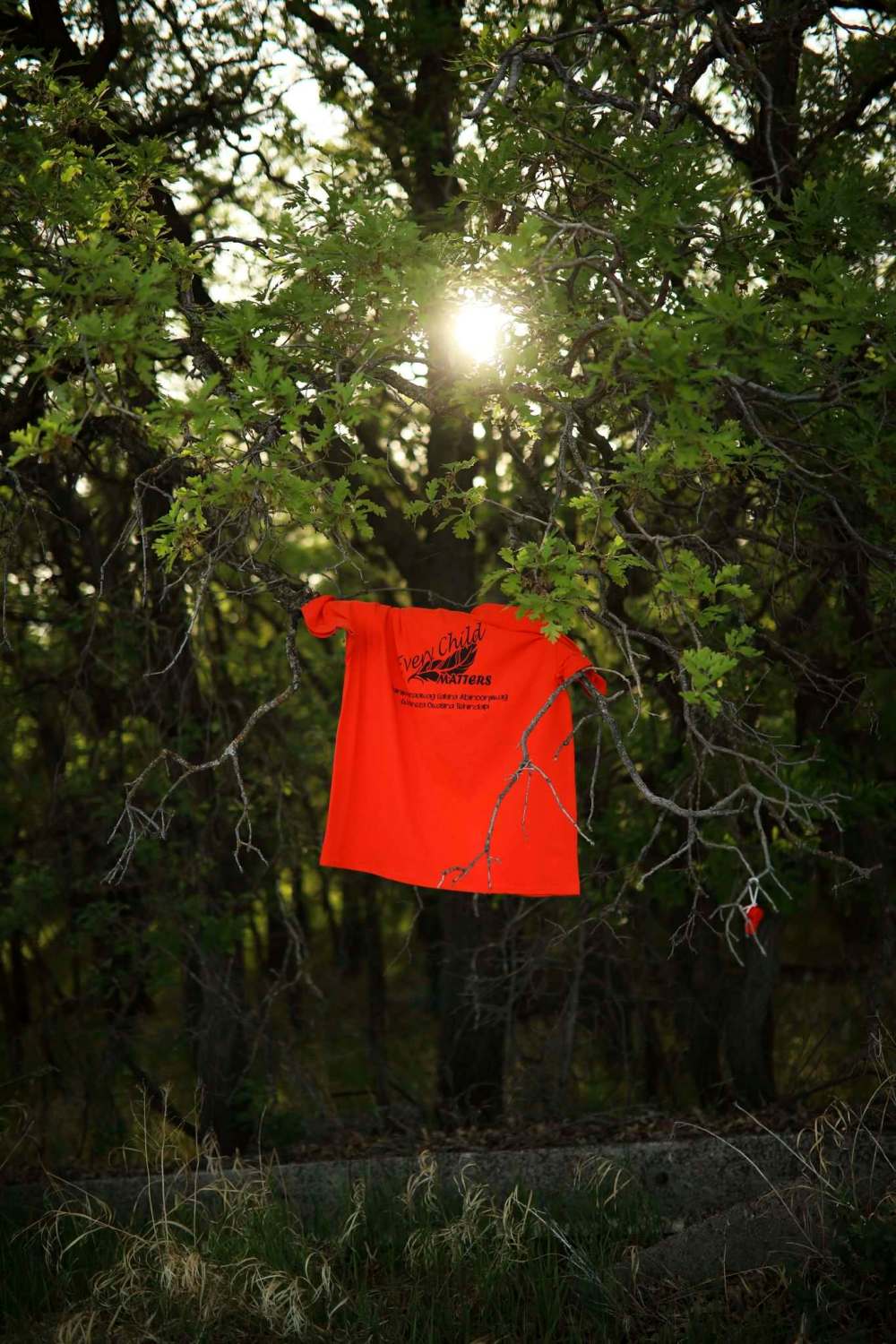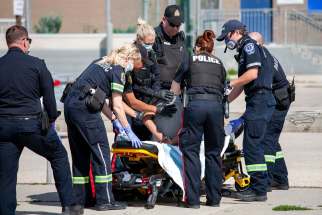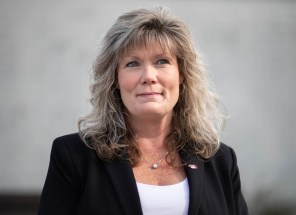New holiday a day for reflection, education
Read this article for free:
or
Already have an account? Log in here »
To continue reading, please subscribe:
Monthly Digital Subscription
$0 for the first 4 weeks*
- Enjoy unlimited reading on winnipegfreepress.com
- Read the E-Edition, our digital replica newspaper
- Access News Break, our award-winning app
- Play interactive puzzles
*No charge for 4 weeks then price increases to the regular rate of $19.00 plus GST every four weeks. Offer available to new and qualified returning subscribers only. Cancel any time.
Monthly Digital Subscription
$4.75/week*
- Enjoy unlimited reading on winnipegfreepress.com
- Read the E-Edition, our digital replica newspaper
- Access News Break, our award-winning app
- Play interactive puzzles
*Billed as $19 plus GST every four weeks. Cancel any time.
To continue reading, please subscribe:
Add Free Press access to your Brandon Sun subscription for only an additional
$1 for the first 4 weeks*
*Your next subscription payment will increase by $1.00 and you will be charged $16.99 plus GST for four weeks. After four weeks, your payment will increase to $23.99 plus GST every four weeks.
Read unlimited articles for free today:
or
Already have an account? Log in here »
Hey there, time traveller!
This article was published 10/09/2021 (1552 days ago), so information in it may no longer be current.
In the spring, when hundreds of unmarked graves were discovered on former Indian Residential School sites, a national conversation about the terrible legacy — and ongoing trauma — of Canada’s residential school system was ignited.
In June, the House of Commons unanimously passed legislation making Sept. 30 the National Day for Truth and Reconciliation, which is now an official federal statutory holiday. It’s a long overdue response to call to action No. 80 in the Truth and Reconciliation Commission of Canada’s final report, which called for the federal government to establish a statutory holiday to honour residential school survivors, their families and communities.

The provinces are not unified in how they are recognizing the federal holiday, however. Manitoba is marking it by closing schools on Sept. 30, as well as all non-essential provincial government services and offices. Flags on all provincial government buildings will be lowered to half-mast. Other provinces, such as Ontario, are not recognizing it provincially.
Previously, Sept. 30 had been unofficially observed across the country as Orange Shirt Day, so named for the orange shirt six-year-old Phyllis Webstad wore — and had taken away — on her first day at a residential school in Williams Lake, B.C., in 1976. The date is significant; late September is when government agents would remove Indigenous children from their families. People wear orange shirts to honour residential school survivors and the children who never came home.
According to a Government of Canada news release, the choice of Sept. 30 as the National Day for Truth and Reconciliation “builds on the grassroots momentum of Orange Shirt Day.”
Or it slows it, depending on one’s perspective. On its face, the fact schools and post-secondary institutions in Manitoba will be closed on Sept. 30 is a bit puzzling, considering education is such a powerful tool in reconciliation. Manitoba’s schools have embraced the concept of Orange Shirt Day as an entry point into difficult and absolutely necessary conversations with young people about residential schools.
For too many decades, Canadians were taught a lopsided history that omitted residential schools as a tool of assimilation. Many Canadians had no idea the residential school system even existed. From that perspective, it makes sense that a National Day for Truth and Reconciliation ought to be spent learning. (As well, while orange shirts will indeed still be worn on Sept. 30, there’s an added visibility when classrooms full of children create an orange wave together.)The date is significant; late September is when government agents would remove Indigenous children from their families.
Then again, a classroom is not the only place one can learn. A holiday creates space for people to attend and participate in events, memorials, marches and ceremonies, to engage, listen, learn, remember and mourn in a fulsome way — so long as everyone gets to participate, not just those employed by the federal government.
Those who don’t have work or school on Sept. 30 should be encouraged to observe the day by learning, by attending events, by reading up on the TRC’s 94 calls to action (and identifying how few of them Canada has accomplished), by supporting Indigenous artists and creators, by listening, honouring, remembering. This work cannot be limited to one day; it must be ongoing.
The National Day for Truth and Reconciliation must be a national day of sombre reflection, education and action.
What it should not become is just another day off.









